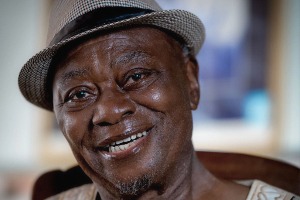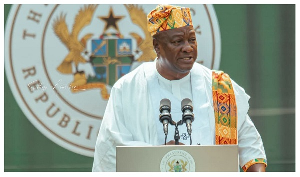A research commissioned by the Campaign for Female Education (Camfed) Ghana, has revealed gaps in the effective implementation of National Guidance and Counselling, especially at the basic, Junior and Senior High school levels.
The study identified several setbacks including; the lack of funding for the operations of the various Regional and District Coordinating Guidance and Counselling Units under the Ghana Education Service (GES), as well as serious logistics handicaps for their effective monitoring activities.
These Units lacked both the human and resource capacities to effectively operate and deliver on their mandate in the area of monitoring the activities of counsellors and teacher mentors within the various educational institutions.
It noted that apart from the fact that the Unit had no dedicated budget, it also did not have any operational plan, even though it was a component within the GES.
The researchers, therefore, made recommendation including the need for legislative amendment to the Educational Act, to deliberately include Guidance and Counselling as an important component of Ghana’s education, commit funding from the Ghana Education Trust Fund such important national activities, and invest in the training of more counsellors.
Mr John Asibi Ali, the National Director of Camfed Ghana, at the opening of a research seminar supported by the Mastercard Foundation Scholar’s Programme in Accra on Tuesday, said the study among other things, explored evidence on the support systems and programmes pertaining to guidance and counselling and teacher mentoring that affected students’ interest in education, academic performance and other school outcomes.
It further looked at the ability of students to progress through school and successfully transition into tertiary education, employment or entrepreneurship, and assessed the implications of research findings for new policies and practices that promoted guidance and counselling and teacher mentoring within and beyond the education system.
Mr Ali underscored the importance of guidance and counselling in influencing positive outcomes of students, especially those at the pre and secondary school levels, saying as an organisation, Camfed strived to design and implement its programmes and interventions based on empirical data resulting from rigorous primary research with significant fieldwork component.
He said in view of this, Camfed and the Girl’s Education Unit of the Ghana Education Service had since 2014 commissioned various research pieces on issues relevant to education in general, and girls’ education in particular.
Discussions at the seminar, he said, were therefore expected to shape policy and stimulate further research in guidance and counselling and teacher mentoring in particular, and support systems available to students.
Mr Ali also explained that the seminar was a precursor to the Camfed/ Mastercard Foundation Scholars Programme’s annual learning summit to be held on Wednesday, June 6, 2018, on the theme: “Implementing the National Guidance and Counselling Strategic Plan: Call to All Stakeholders”.
Mr Kofi Asare, a Social Development Consultant and Director of Perform Ghana, in a presentation, urged the GES to develop a standardised guidance and counselling manual for counsellors, a handbook for students for self-tuition, and also a strategic plan to guide the Guidance and Counselling Units under the Service.
He, however, argued that all the researchers being discussed would mean nothing if the Guidance and Counselling Units within the schools were not supported to implement the outcomes and recommendations.
Dr Francis Annor, a Lecturer at the University of Ghana, and Research Consultant touching on the “Role of Camfed-Supported Teacher Mentors in Influencing Outcomes for Students in Secondary Schools in Ghana”, said the lack of support for Guidance and Counselling Units made it frustrating for effective progress.
In schools where the service existed, it was teachers who volunteered, however, some allowances were given for similar services in well-endowed institutions, through the efforts of the Parent-Teacher Associations.
He urged the government to draw on the strengths of the Camfed Teacher Mentoring programme to raise its existing monitoring systems aimed at enhancing girl-child education, and invest in the training of more counsellors, especially females, to address the needs of these group of students.
General News of Wednesday, 6 June 2018
Source: ghananewsagency.org
Camfed Ghana holds research seminar on guidance and counselling
Entertainment
















